Email enquiries@travel-doc.com
Email enquiries@travel-doc.com
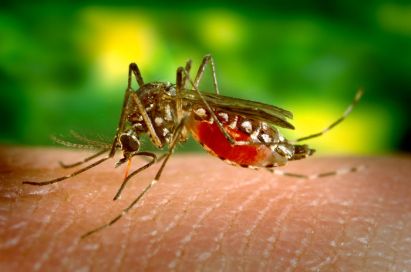
Aedes aegypti mosquito feeding ©James Gathany / CDC
Yellow Fever is a serious viral infection that’s usually spread by a type of daytime biting mosquito known as the Aedes aegypti. It can be prevented with a vaccination.
Yellow fever mainly occurs in sub-Saharan Africa (countries to the south of the Sahara desert), South America (especially the Amazon) and in parts of the Caribbean.
Yellow fever can be fatal. About 8% of people who get yellow fever die from it.
Luckily, there is a very effective vaccination for yellow fever. Some countries require proof of vaccination (a certificate) against yellow fever before they let you enter the country.
Vaccination is the single most effective way of preventing yellow fever.In the UK, Stamaril (produced by Sanofi Pasteur MSD) is the only licensed yellow fever vaccine. A single dose of the yellow fever vaccine will protect against yellow fever for life. It is no longer recommended to have a booster dose every 10 years (WHO, World Health Organisation, July 2016).
Ideally, you should have the yellow fever vaccination at least 10 days before your travel. This will allow enough time for your body to develop protective antibodies against the yellow fever infection.
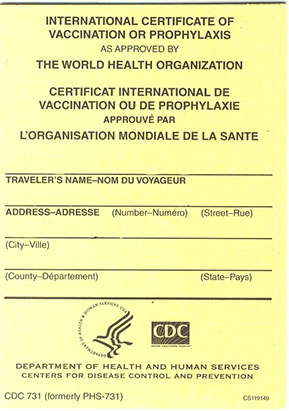
A blank ICVP certificate
Under regulations set out by the World Health Organization (WHO), anyone traveling to a country or area where the Aedes aegypti mosquito is found must have the vaccine or have an International Certificate of Vaccination or Prophylaxis (ICVP). You can find a list of all the countries that require you to have an ICVP in the WHO International travel and health guide. You can also search the country information on NaTHNaC to find out whether the places you are visiting require an ICVP.
If you have been traveling in an “at-risk” area during the past month, it is a good idea to carry your certificate with you. This will help avoid potential problems with immigration. It is possible for travelers without a valid yellow fever vaccination certificate to be vaccinated and held in isolation for up to 10 days. An ICVP is not required for entry into the UK.
If you lose your certificate, you may be able to get another one reissued as long as you have details of the vaccination batch number and the date you had the vaccination.
Always consult staff at a designated vaccination centre if you are planning to travel to an area where there is a risk of getting yellow fever. If you tell them where you are traveling to, they will be able to advise you about whether you need to be vaccinated against yellow fever and whether you need an ICVP.
In cases where having a yellow fever vaccination is not advised, your GP may be able to issue you with an exemption letter. The letter should be written on headed notepaper and include the practice details. It may be accepted by some immigration authorities although this is not guaranteed. If you are traveling from an area where there is a risk of yellow fever without a valid yellow fever certificate, immigration officials are legally entitled to quarantine you for a period of at least seven days at the point of arrival into a country.
After having the yellow fever vaccine, 10-30% of people will have mild side effects such as: headache, muscle pain, soreness at the injection site and mild fever
Reactions at the injection site usually occur one to five days after being vaccinated, although other side effects may last for up to two weeks.
An allergic reaction to the vaccine occurs in one case out of every 130,000 doses of the vaccine that are given. Yellow fever vaccine-associated neurological disease (YEL-AND)
Rarely, the yellow fever vaccine is associated with a neurological condition known as yellow fever vaccine-associated neurological disease (YEL-AND). Neurological means that it affects the nerves and the nervous system, including the brain and spinal cord.
YEL-AND occurs in around four cases out of every 1 million doses given. However, for people who are 60 years of age or over and yellow fever vaccine naïve, the incidence of YEL-AND increases to around one in every 50,000. This needs to be balanced against the risk of acquiring the disease.
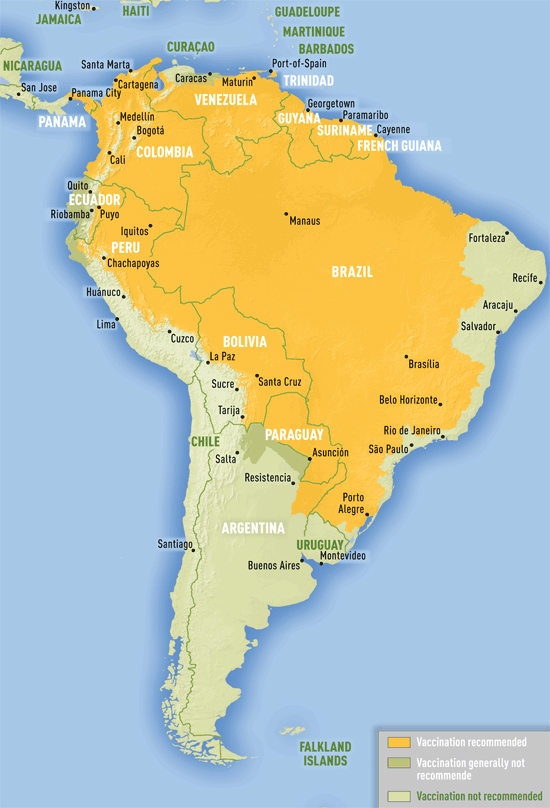
Yellow fever vaccine recommendations in the Americas (July 2015 CDC)
As well as getting the yellow fever vaccination before traveling, you should also take steps to avoid being bitten by mosquitoes.
The mosquitoes that carry yellow fever bite during daylight hours. Although it may not always be possible, you should try to:
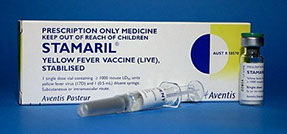
The Stamaril yellow fever vaccine
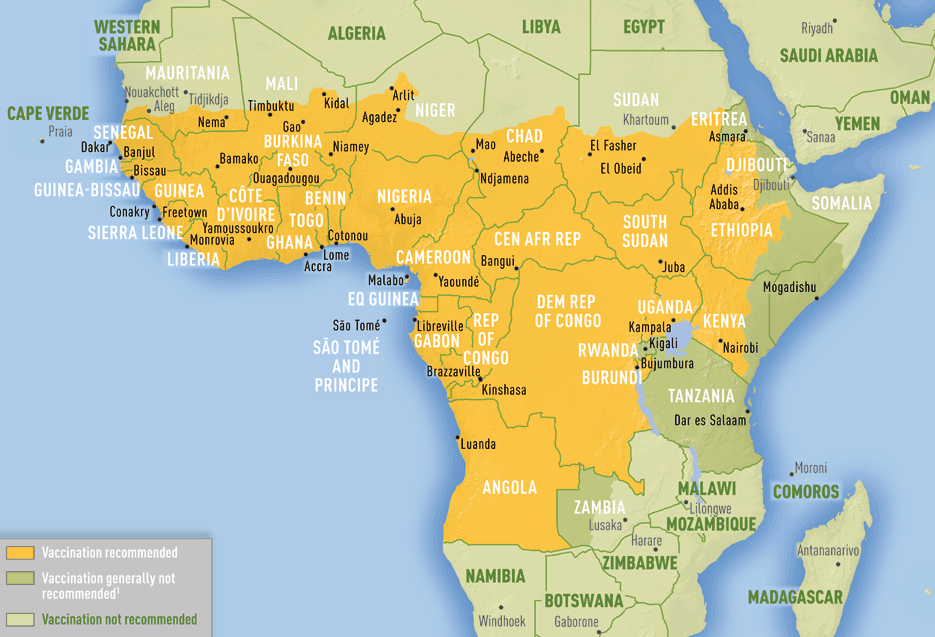
Yellow fever vaccine recommendations in Africa (July 2015 CDC)